Crossrail release video celebrating new Woolwich station
Crossrail have released the latest in a line of videos looking at design and development of stations along the route this morning – and it’s Woolwich that is highlighted.
It includes snippets from Rob Naybour who designed the station for architects Weston Williams & Partners. He mentions challenges of construction with fine sand and discovering a Roman river bed.
He also highlights how “the Arsenal has become separated” as the camera cuts to the busy, six lane road outside.
He mentions how the station helps to reconnect the Arsenal site with Woolwich town centre, though it doesn’t really do that. To be fair it cannot do that and it isn’t the architects fault. The road between the two is just not designed to be people-friendly for pedestrians.
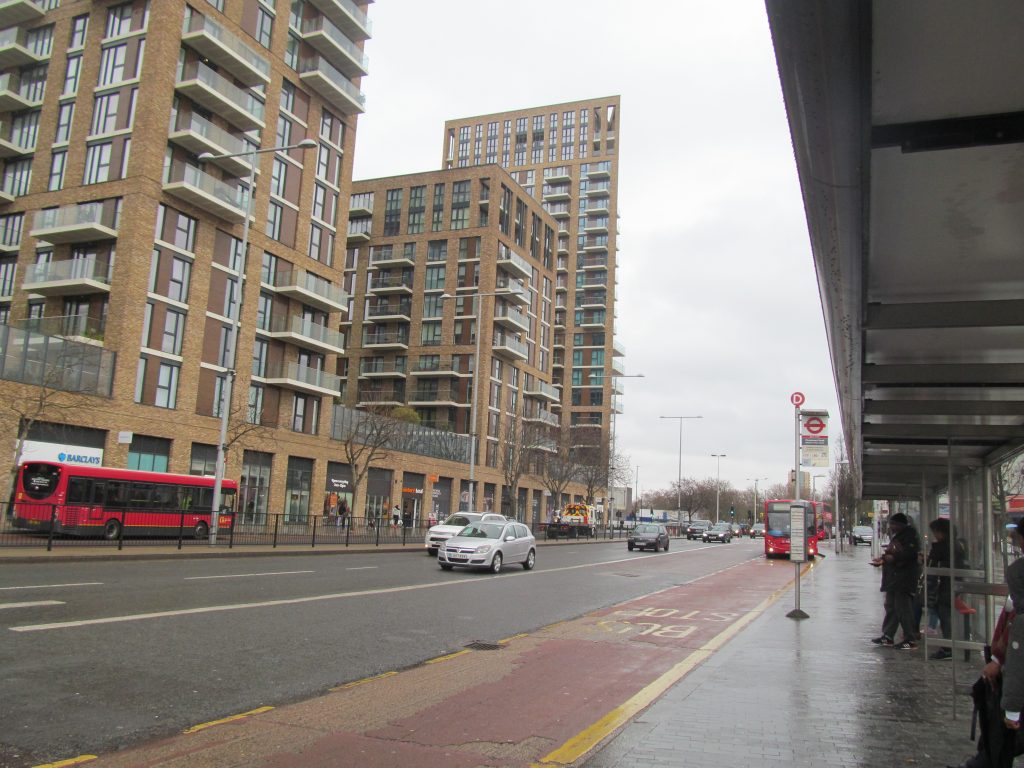
This is the same road that saw changes made by Greenwich Council in recent years which ignored TfL street design guidance, removed greenery and installed guardrailing over a long stretch reinforcing vehicle dominance and the impression of a major A-road, rather than a street through a highly populated town centre with high footfall.
One with no cycle lane despite a number of changes over the years including a “super crossing”.
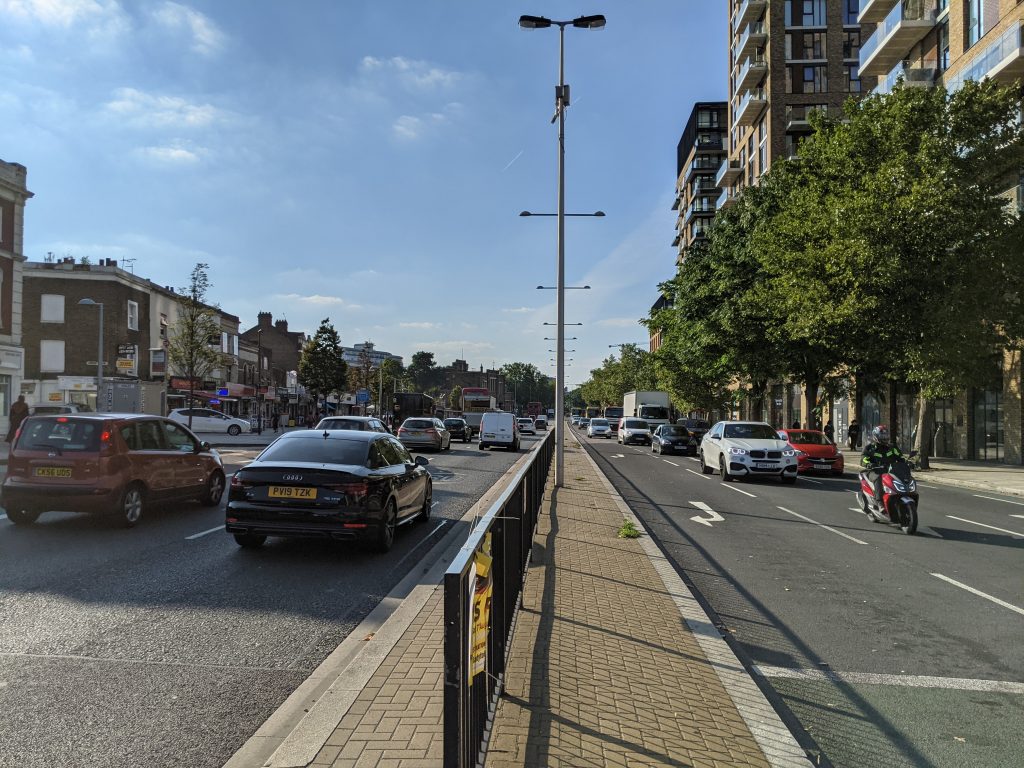
In fact, new plans for homes revealed last year look to cement that divide by building right up to the very edge of land leaving no space for a cycle lane and narrow paving as seen below:
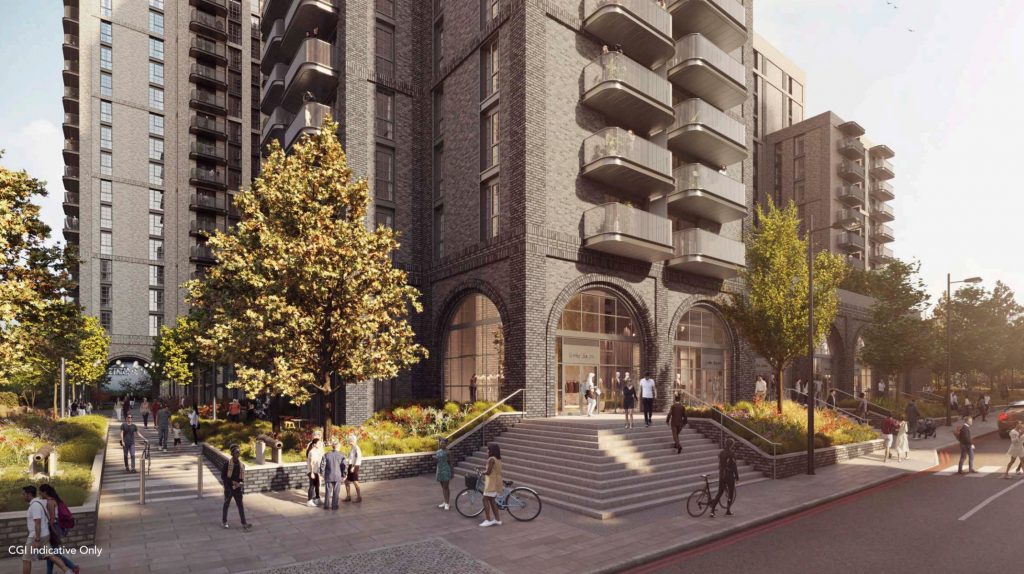
Little change is planned despite high rises planned on either side:
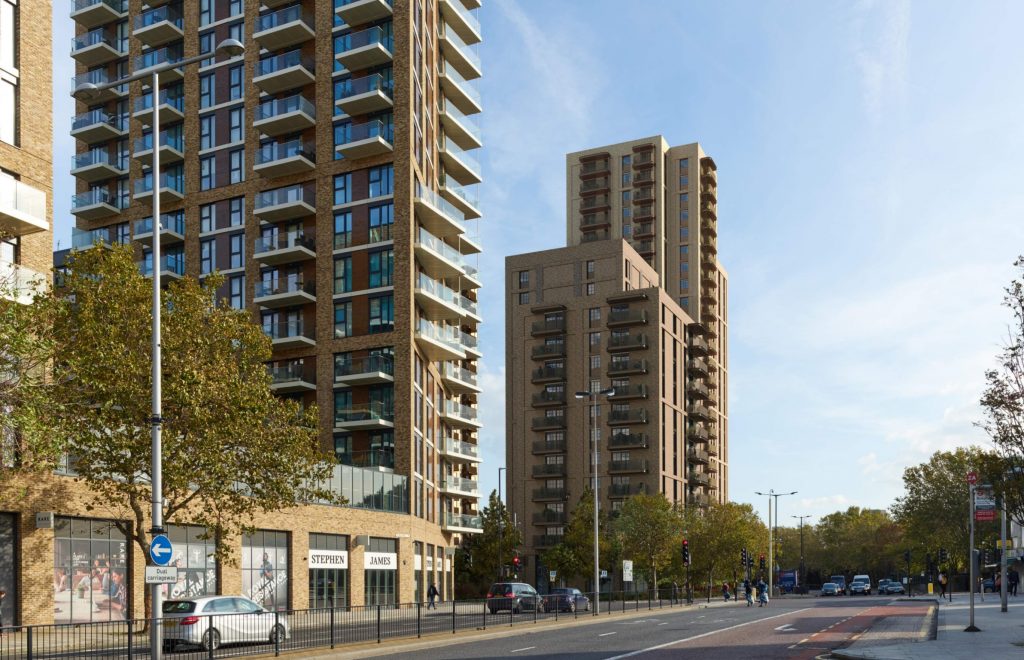
Opposite is Woolwich Exchange:
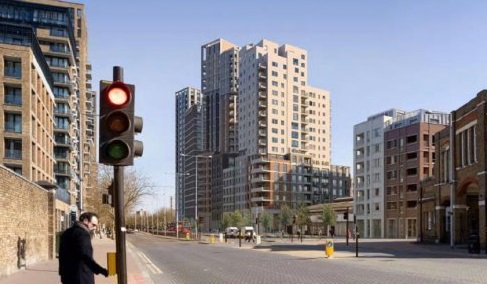
The road dominates the area:
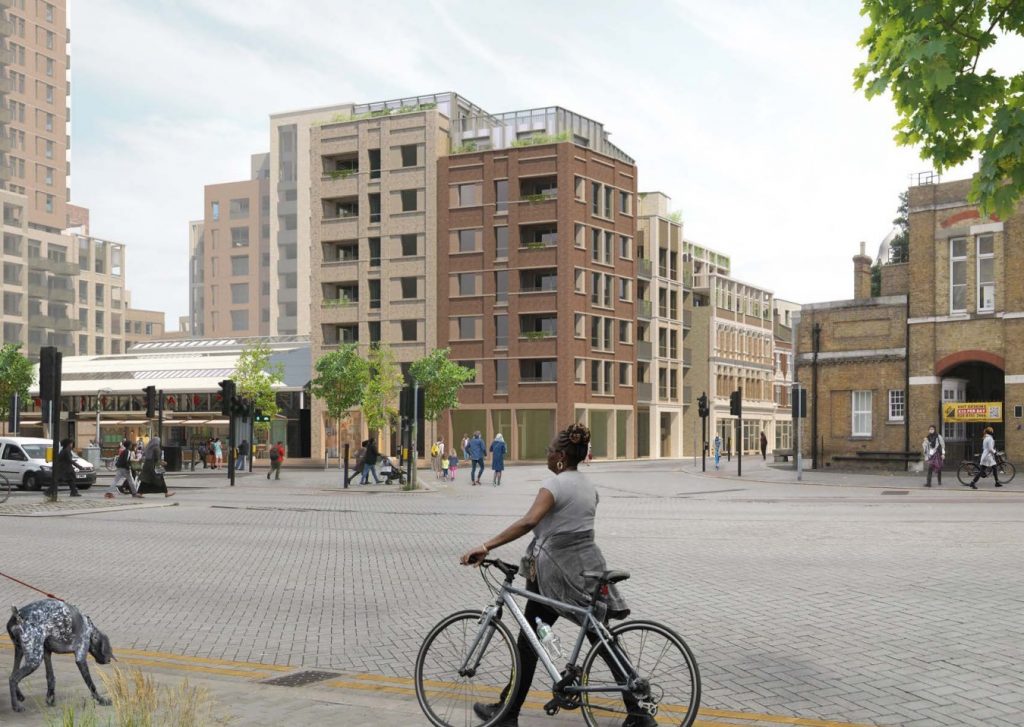
The video also praises a building next door – the Officers’ House or Building 11. Berkeley Homes sought to demolish in 2014. It only survives as local people fought for it.
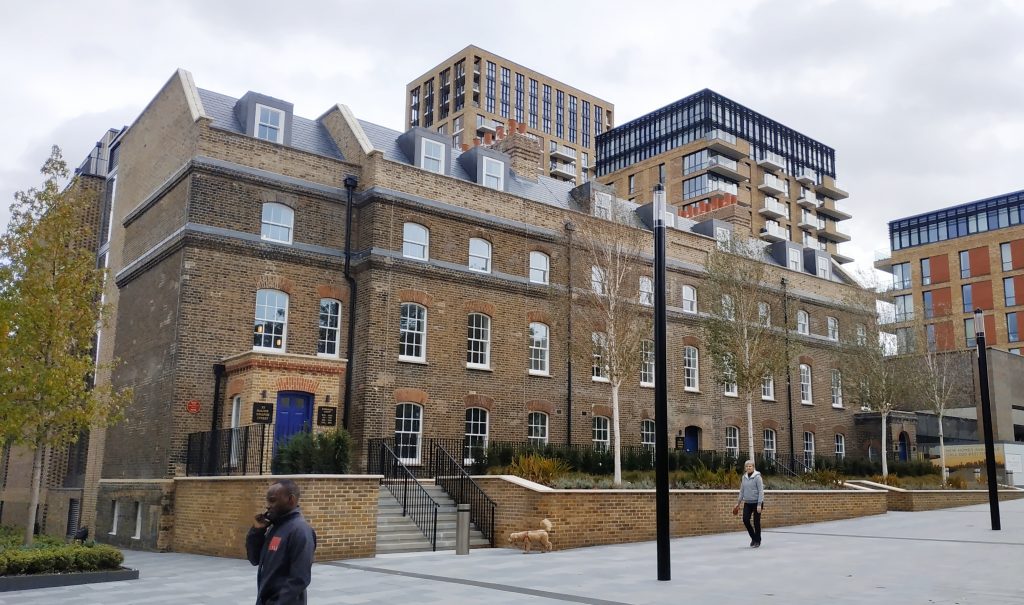
The original plan was a drop off point and turning circle in place of the listed building.
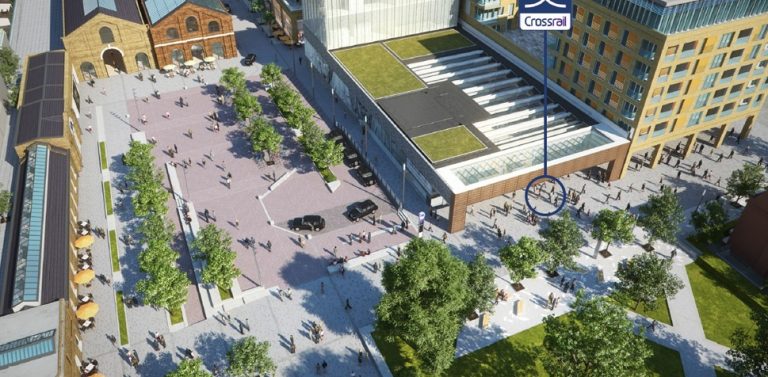
Woolwich station itself was also never on the Crossrail line originally – which seems crazy to think of now. Services were due to run between Custom House and Abbey Wood.
Greenwich Council fought for it and a deal was struck whereby Berkeley Homes would build a station box if allowed to construct towers above. Fit-out costs would be paid by Greenwich Council via Section 106 and Community Infrastructure Levy up to the total of £15 million.
That struggle to secure the station ensured there was no second entrance to the east to serve Plumstead.
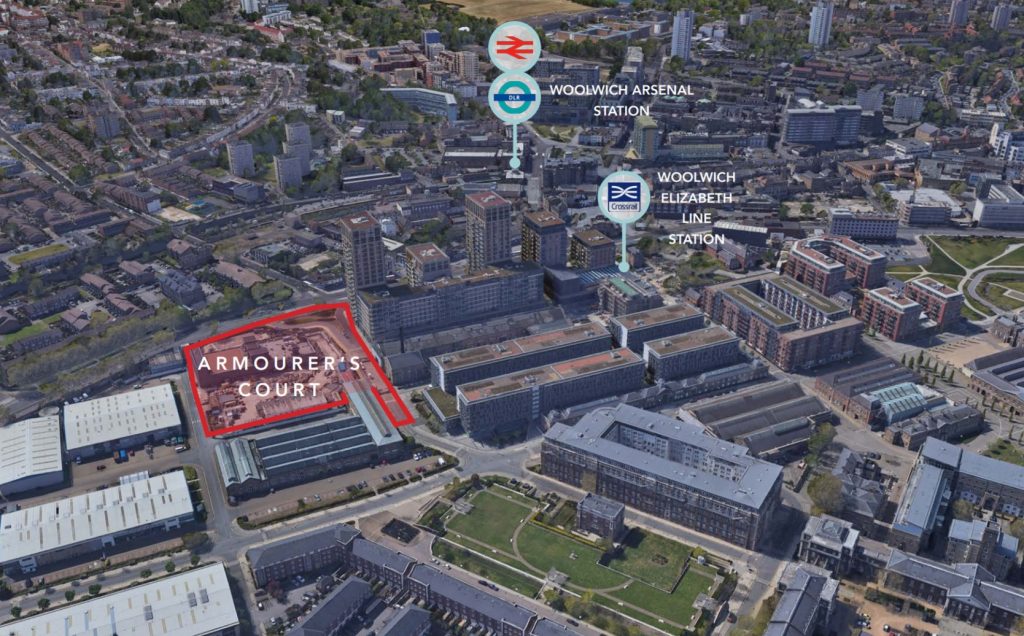
Many more homes are planned to the east and that clearly now seems a mistake – but options were limited. The real issue is no apparent passive provision for a future second entrance and exit.
If we look at the east of the station, towers are planned directly above:
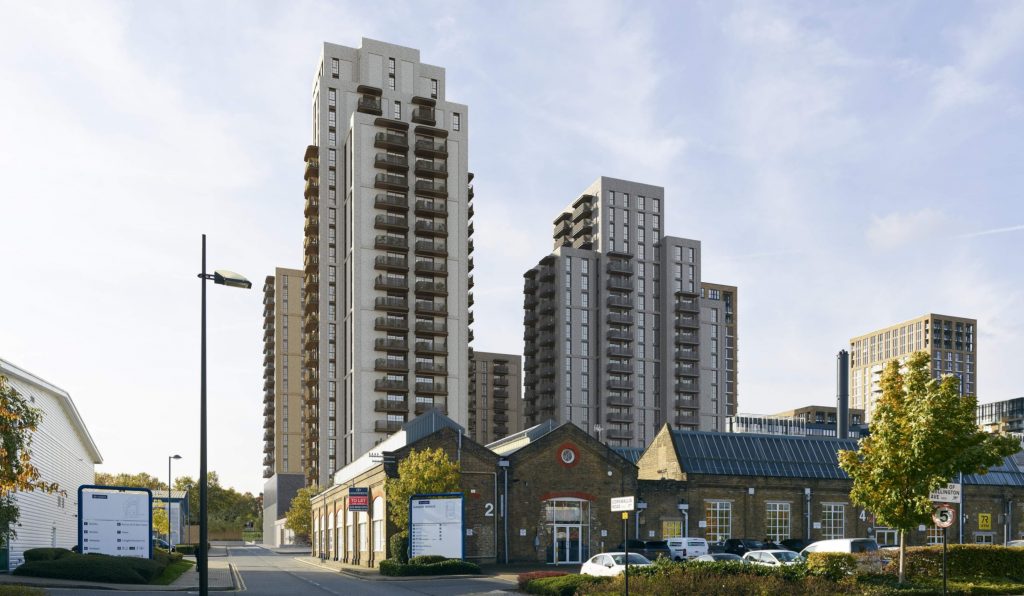
To the east, Plumstead campus of Greenwich College is to be rebuilt with housing and a smaller college site:
And of course head east a bit more and there’s 1,750 homes at West Thamesmead.
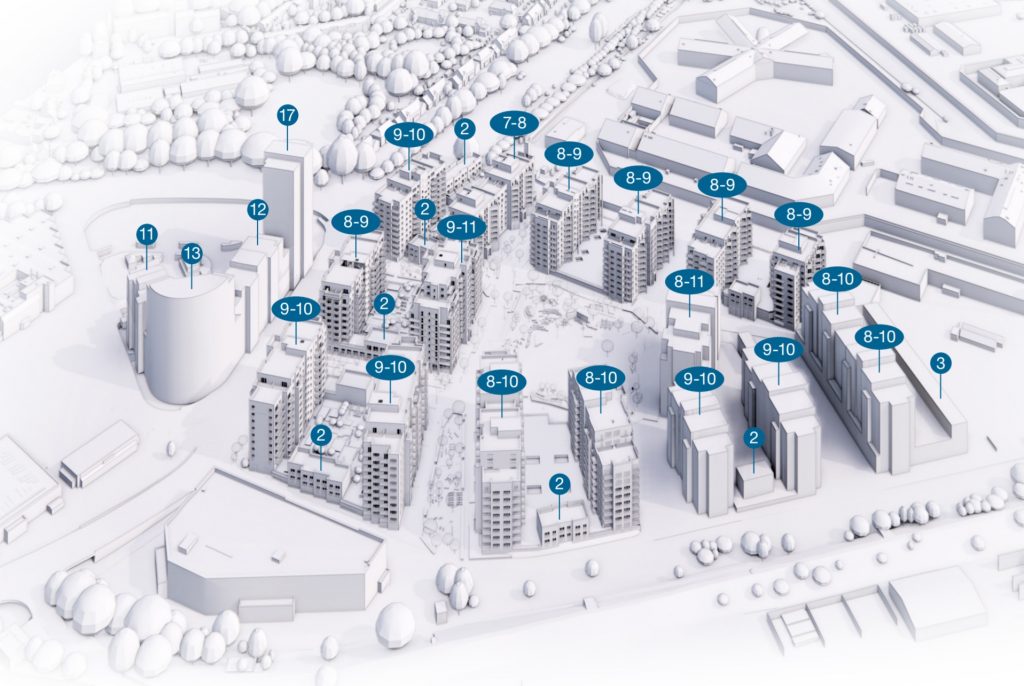
Oh, and another 330 homes nearby near Broadwater canal which once served the Arsenal site:
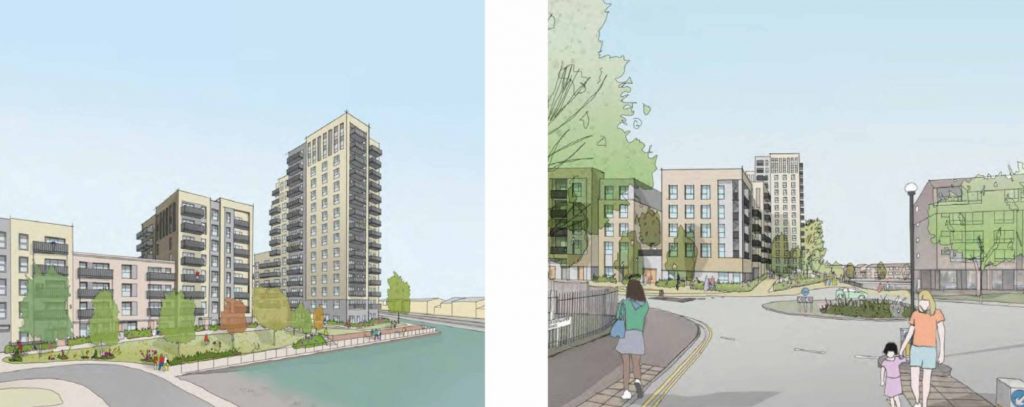
And there’s more land with housing planned in future in a number of areas – including a substantial plot beside the river owned by Peabody and not part of 20,000 dependent on a DLR extension at Tripcock Ness.
Station design
The station itself is really quite modest at street level – though extremely impressive below ground.
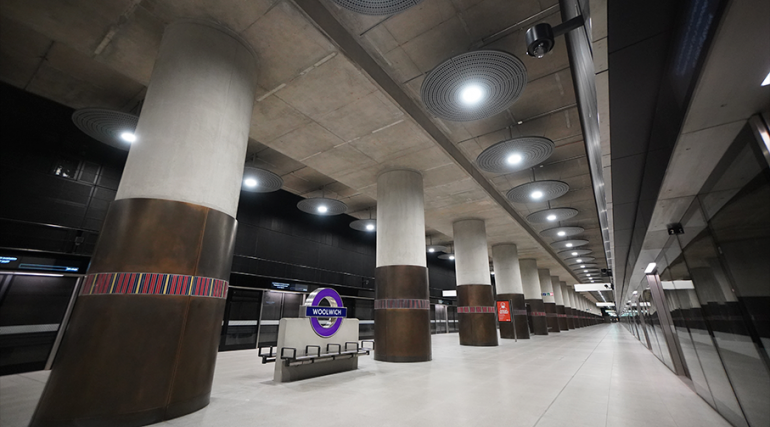
There’s plenty of space for passengers on the island platform and some lovely details such as those bands around the hefty pillars. The colours represent former regiments on site.
A single entrance offers a large, open space with natural light streaming in. A band of perforated panels based surrounds the building based on the dead man’s penny and referencing the site’s military history.
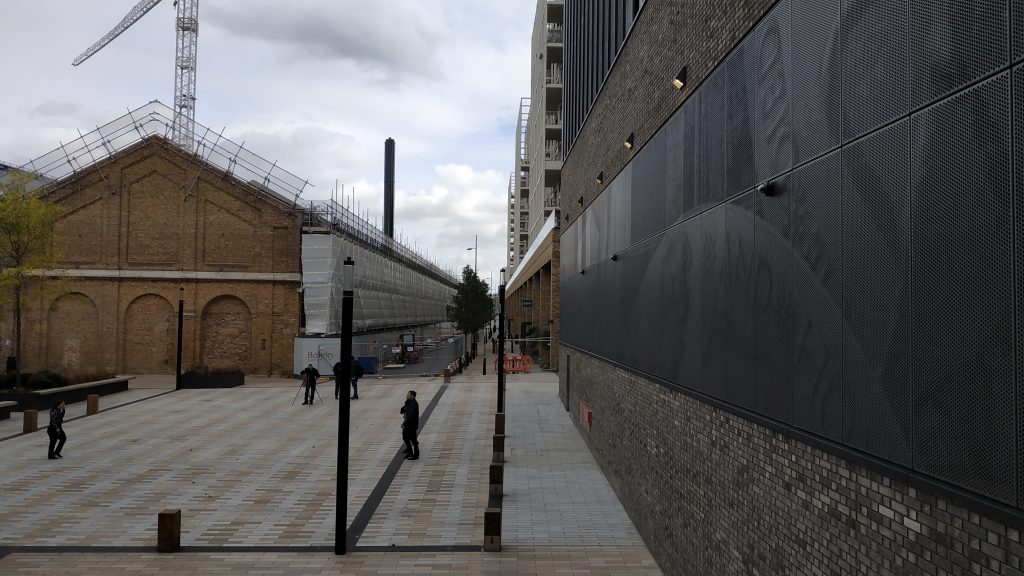
In many ways things right now are better than they could have been. There’s a station for one thing, which will be a major boost to the area. A wonderful building remains next door that could have been reduced to rubble. now it provides homes, frames two squares and in future commercial units at street level for passing pedestrians.
Now the challenge is to ensure towers above the eastern end of the station do not ignore pedestrians and cyclists, and that the road separating the station and Woolwich town centre – including interchanges at Woolwich Arsenal station – becomes less of major barrier. Once again it’s possible. Numerous developments are bringing much income – even with Greenwich’s very low levies on developers – but the question remains; will they do it? Small changes to the crossing enacted a couple of years ago seem to be the extent of ambition, and it really needs more than that.
Running a site alone takes time and a fair bit of money. Adverts are far from enough to cover it and my living costs as a private renter.
You can support me including via Paypal here Another option is via Patreon by clicking here You can also buy me a beer/coffee at Ko-fi here There's also a Facebook page for the site here Many thanks
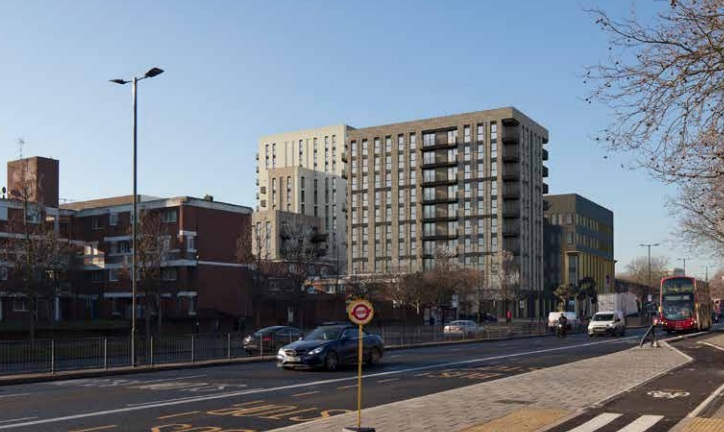
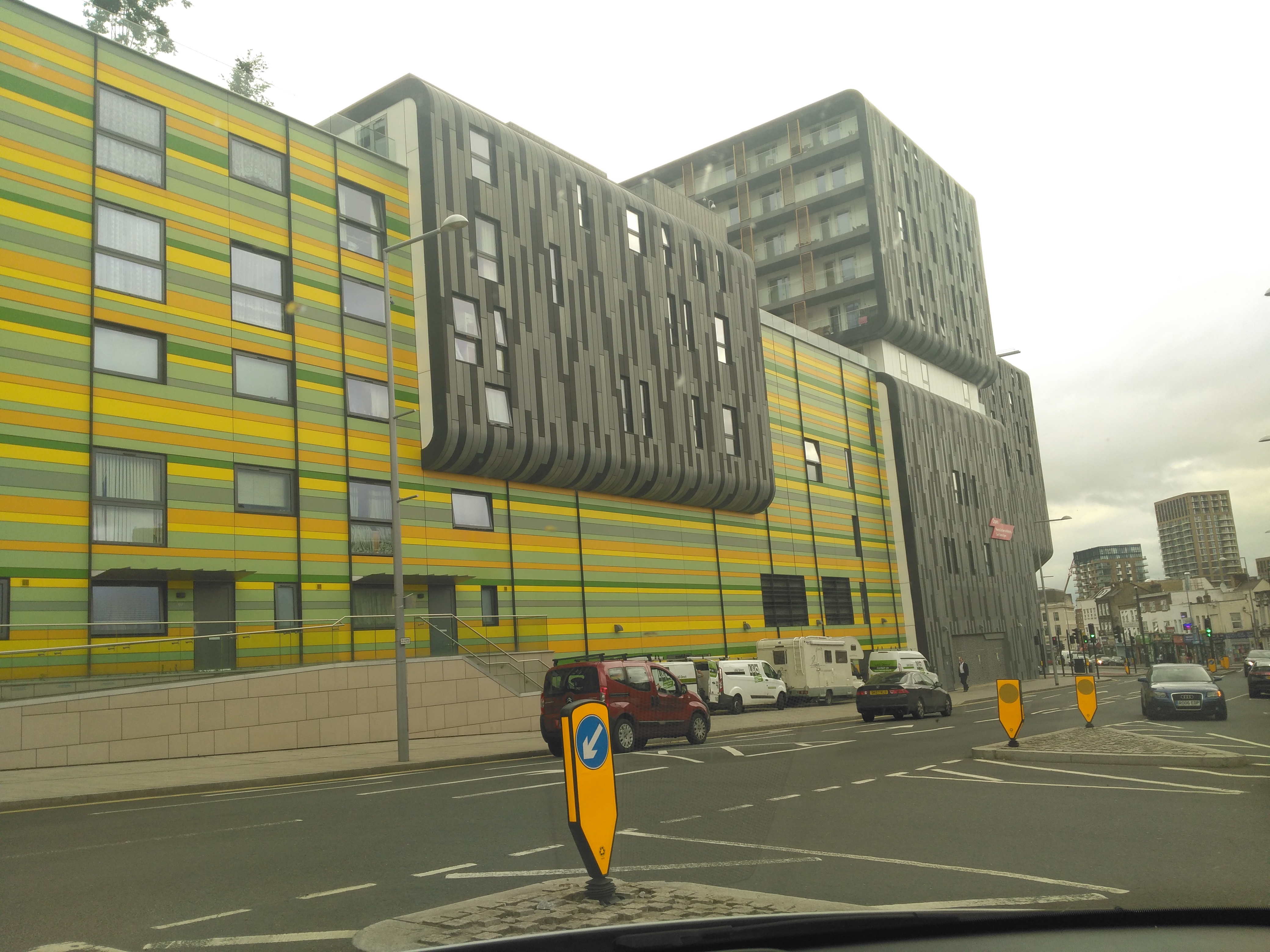
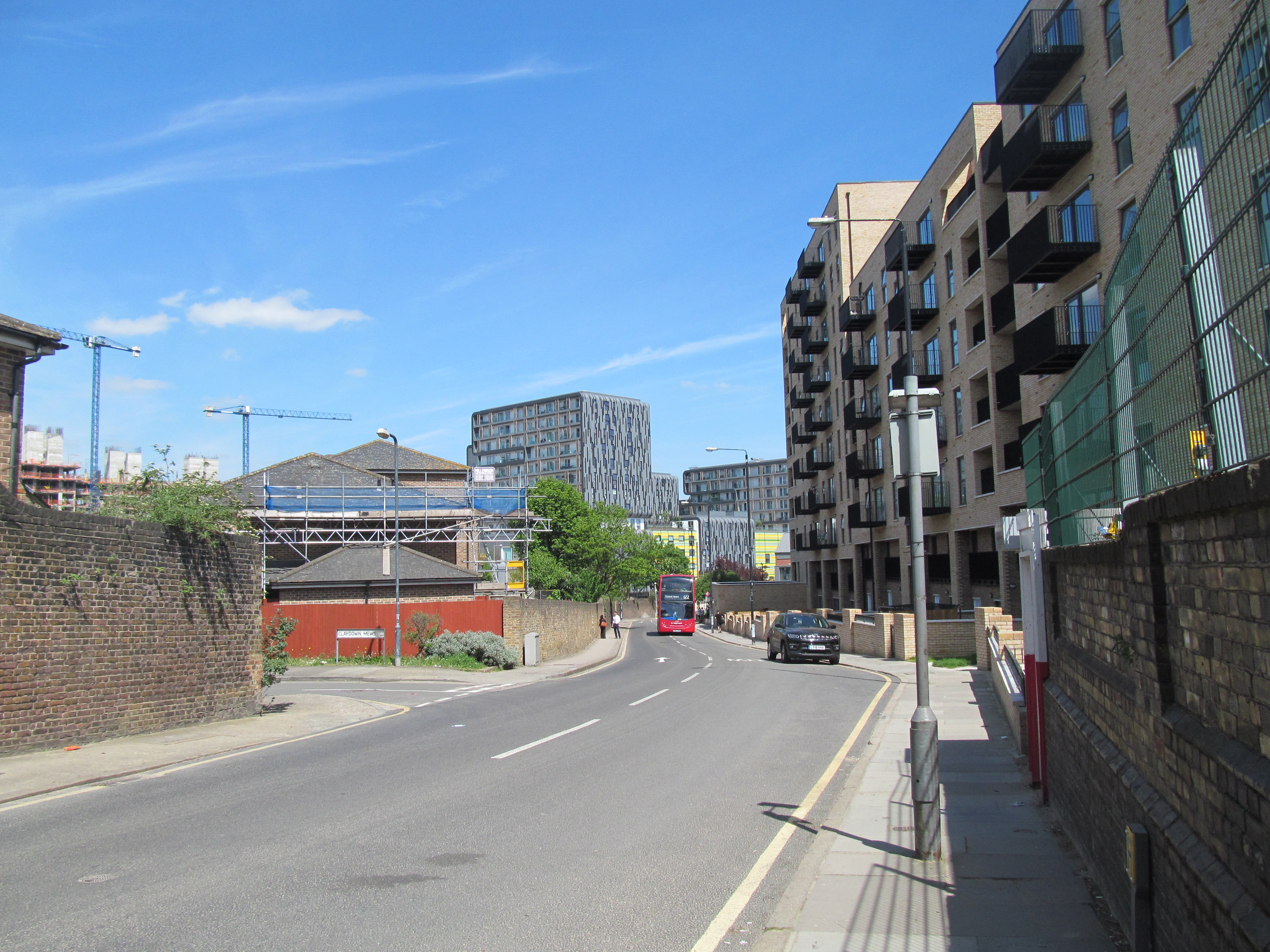
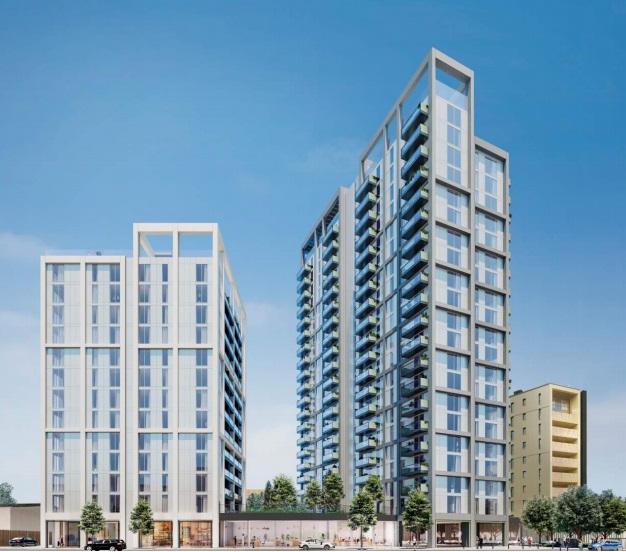
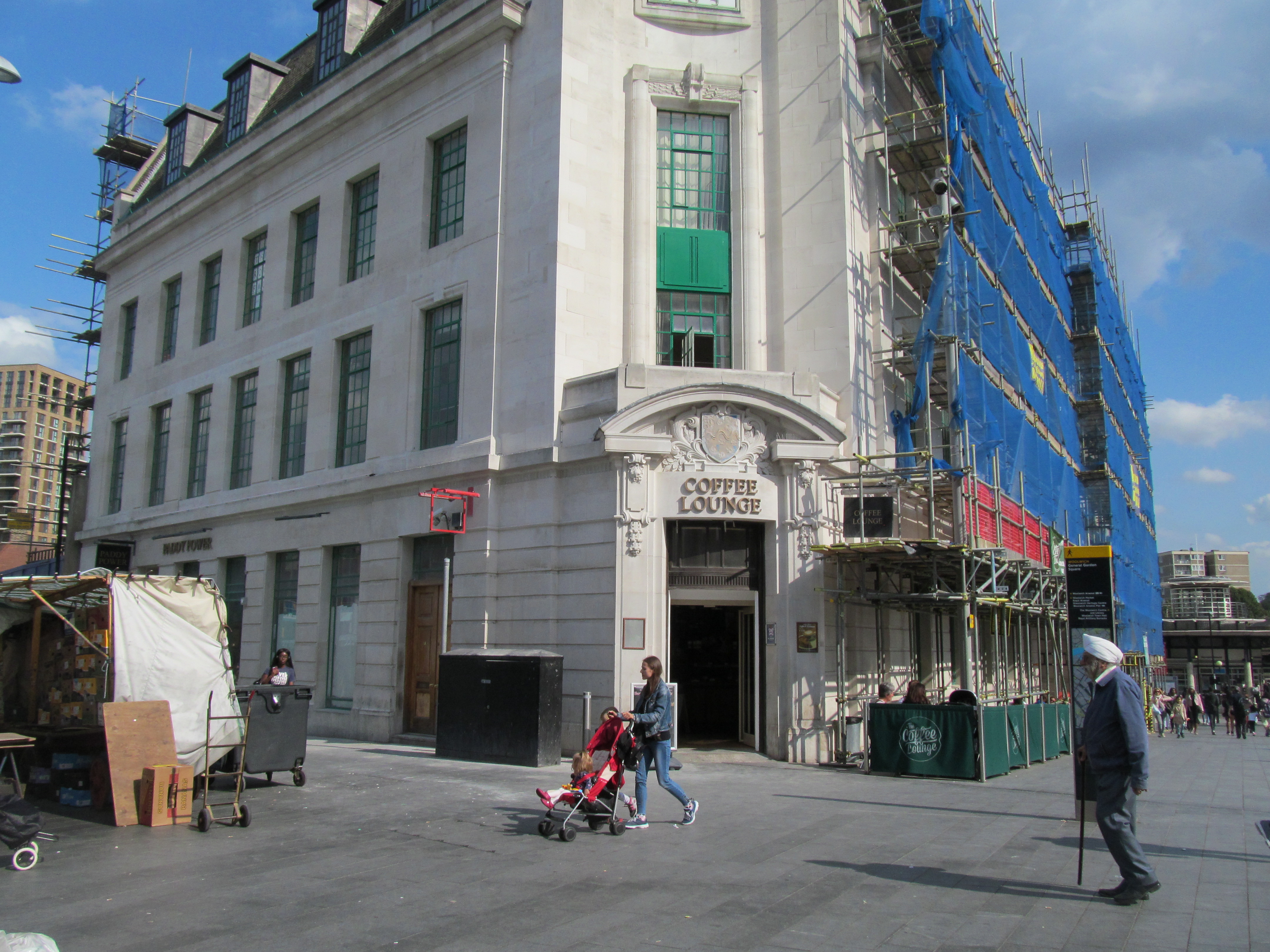
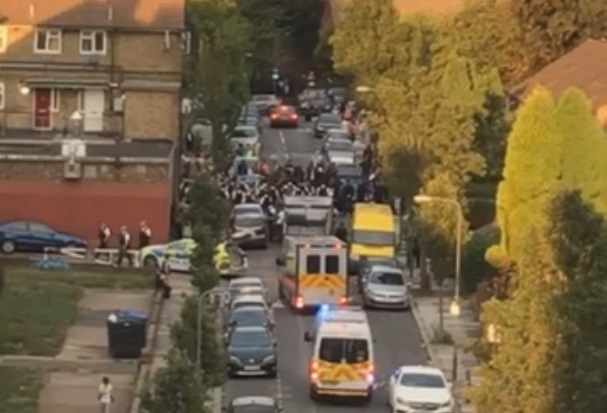
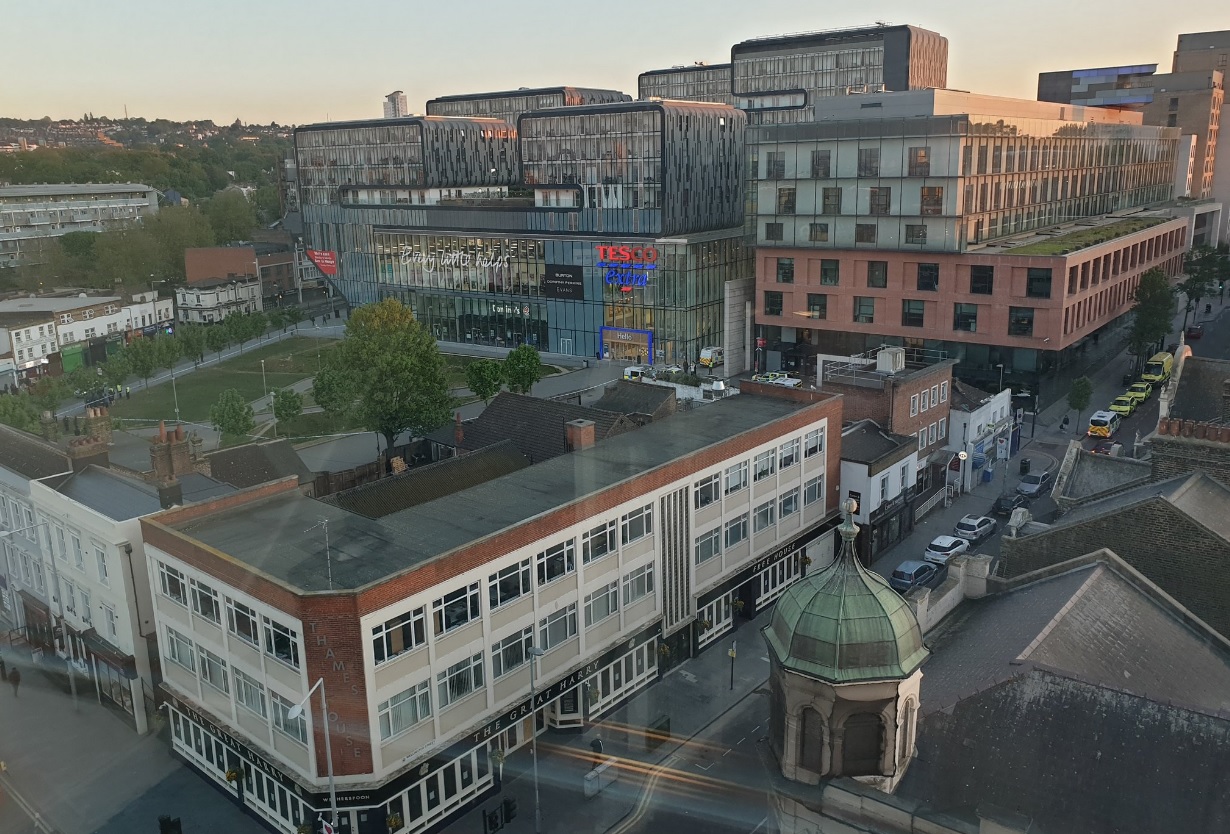
I do hope all the councillors read your blog John, a useful tool as always. Does seem a lack of greenery in the pic of the new square and in artist impressions and on plans, as well as the lack of provision for pedestrians and cyclists. Pandering more to those driving through rather than needs of the thousands of new building occupants locally. Same old same old in that respect. No forward thinking. And the limited greenery reflecting the cost to council of maintenance perhaps, rather than giving consideration to the immense mental health and physical health benefits of large established planting (rather than token small saplings and raised beds generally untended and litter attracting.). Looks a concrete jungle to me, but guess the younger ‘gen-Z’ (or whatever letter we’re up to now- Gen ‘AA’ next?) are just happy with a high rise if it has a cool new kitchen and bathroom. But space for recreation, chilling, socialising also takes a poor second (or third) best. Sadly unless these are provided for as more than a token it becomes a crime hotspot within decades. It may help RBG reach targets for numbers of units year on year, but at what cost to everybody originally living here and those still here in 20/30 years? Is there ‘any’ overall plan for residents wellness, or just a free for all for developers to build up and up and max profits, and RBG to say they’re meeting Govt targets? Like you clearly say John, it could have been worse, but for locals intervention, what little power they have. And just love your comment about the walking cyclists!! Excellent. (and speaking as a cyclist, somewhat sad too)
Actually the planting and landscaping around the Royal Arsenal is pretty good, there are some beautiful areas of planting, seating, and water features between the buildings. The planting is all beautifully maintained too. Because presumably it’s managed privately and not left to the council? The new square, that is the area behind the station and in front of building 10, promises to be a great social space. Provided of course they get the right mix of businesses for the commercial units. What stood out for me in the video were the shots of Woolwich New Road – what an embarrassment. I can’t wait for that mess to be swept away and buildings restored. THEN we’ll have a slightly better link between the town and the Arsenal.
@ Michael I agree. We need to get the buildings that are staying restored we also need to get the Spray Street development started and completed as soon as possible.. Woolwich New Road is in need of regeneration..
The road needs to be made single carriage with a bus lane (including cycle provision), 20mph speed limit and camera enforced traffic light crossings. Its a really dangerous road and nothing about it works unless you want a motorway running through the centre of town. Expect councillors to be up on arms about how simple measures are ‘complex’ and another decade of inaction.
It’s not a “really dangerous road” since there are light controlled crossing points, one of which is right outside the gatehouse. There are lots of things about Woolwich to be upset, crossing Beresford Street is not one of them.
In fairness to everybody involved in managing Woolwich, the problem is not so much the “impression of a major A road”, as stated by the author, but the actual existence of a major A road. It should 100% be Greenwich’s aim to reduce car dependency and the amount of space dedicated to cars, but choking off the A206 is hardly a viable option when it is the main transport artery through the north part of the borough. It might seem a shame that the (nice) Arsenal is separated from the (not nice) rest of Woolwich, but I suspect that a big part of the reason why the Arsenal is such a success is that it is cut off from the scabby parts of town by a wide, fast-moving road
There are a lot of benefits to living in flats. They are more economical and enable easier access to public transport. There is no reason for children living flats to become criminals. This may have tended to happen in the past because people from socially deprived groups (who were more likely to commit crimes anyway) were moved en mass into tower blocks. That’s not the same as reasonably well to do people purchasing expensive flats and getting stuck in them due to a lack of supply of houses. In Europe and some US cities people have been living in flats with relatively normal crime rates for years. People go to gyms to exercise now.
@anonymous 201481 The crossing times need to be a little longer to allow more time for the elderly disabled and parents we small children to get across the road safely.
“Will they do it?” Unfortunately, no! But, you can be damned sure GLab will get the lion’s share! SMH